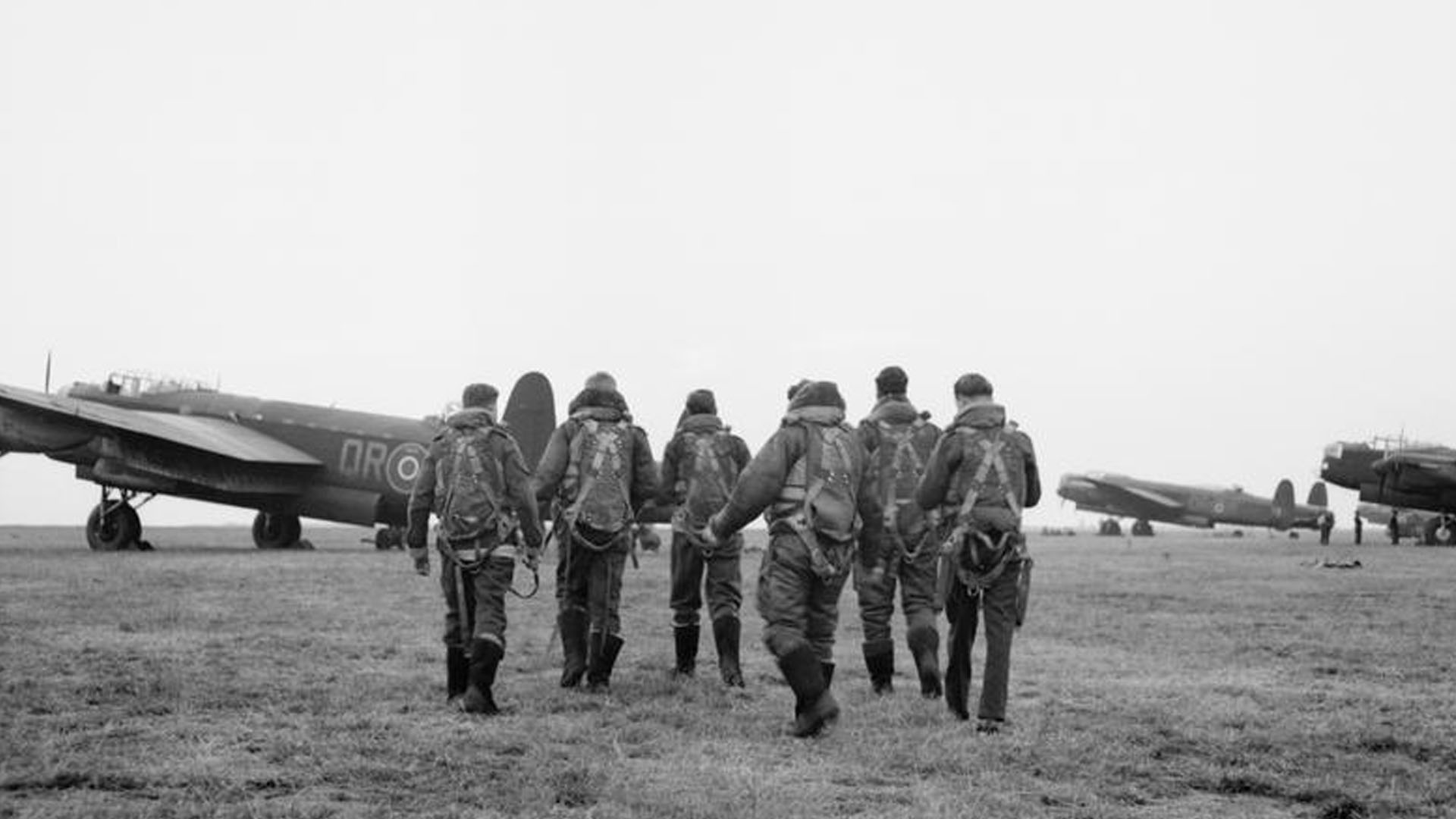Warrant Officer Cecil Watson Albert Keys served in the Royal Air Force during the Second World War. He was a wireless operator and his time in service included a period on special operations in North Africa with RAF 624 Squadron.
Born in September 1913, he was the son of Joseph George Keys and Emily Keys (née Gibson), a farming family from Aghavilly, Co. Armagh. He enlisted in the Royal Air Force in 1942. Keys had an older brother George and a younger brother Fred.
While serving in the Royal Air Force he met his wife Rachel Ann (Nancy) Thompson. She was a nurse from Plymouth, Devon, England. They married on 7th January 1945 in Plymouth. The couple had five daughters; Patricia, Hazel, Eunice, Joyce, and Marina and a son Rodney. Nancy passed away in 1975.
Throughout the war, Keys flew onboard Avro Lancaster and Short Stirling bombers. His last operational mission during the war was a raid on Hamburg’s U-Boat pens with RAF 61 Squadron. The raid inspired a famous painting by David Pentland.

Imperial War Museum Photo: CH 10714 (Part of the Air Ministry Second World War Official Collection). Crew of an Avro Lancaster Mk. I of RAF 61 Squadron walk towards their plane at RAF Syerston, Nottinghamshire before a raid on Hamburg, Germany. Photo taken by Flying Officer W Bellamy - Royal Air Force Official Photographer.
During this raid, the men of RAF 61 Squadron came under attack from jet-propelled Luftwaffe planes. They had been flying in gaggle formation through heavy flak. The Luftwaffe jets were a new development in the Hamburg skies. The raid took place at 0900hrs in bright sunshine. Escort duties fell to American Mustang planes with large fuel tanks.
Our two gunners had already seen it but we were also aware our .303 calibre guns would be no match for the .5 shells from the German jet. I was searching the area directly behind us for another possible dash of the enemy jet when a Lancaster, about 100 yards behind us suddenly put its nose down in a vertical dive. The jet had come in so fast they hadn’t much hope of getting a hit. We were aware we had just missed getting the chop instead of the unfortunate crew just behind us. Indeed, our bomb aimer was hit by flak.
While based in Bilda, Algeria with RAF 624 Squadron, Keys’ crew dropped men behind enemy lines to assist resistance groups. It also dropped supplies for the units forming on the ground. Missions included Italy, France, Yugoslavia, and Czechoslovakia. RAF 624 Squadron disbanded on 5th September 1944. Cecil joined RAF 61 Squadron in March 1945 and remained in Bomber Command for the rest of the war.
In later years, Cecil Keys became a well-known face in ex-service circles around Lisburn, Co. Antrim. As Vice President of the local Royal Air Forces Association, he was an organiser for the Wings Appeal charity and standard-bearer for the branch. He had also helped found the Armagh branch. He was also a member of the Northern Ireland Branch of the Aircrew Association and No. 624 Squadron Association.
Cecil Watson Albert Keys died on 22nd April 2003 aged 89 years old at his home in Millbrook Walk, Lisburn, Co. Antrim.